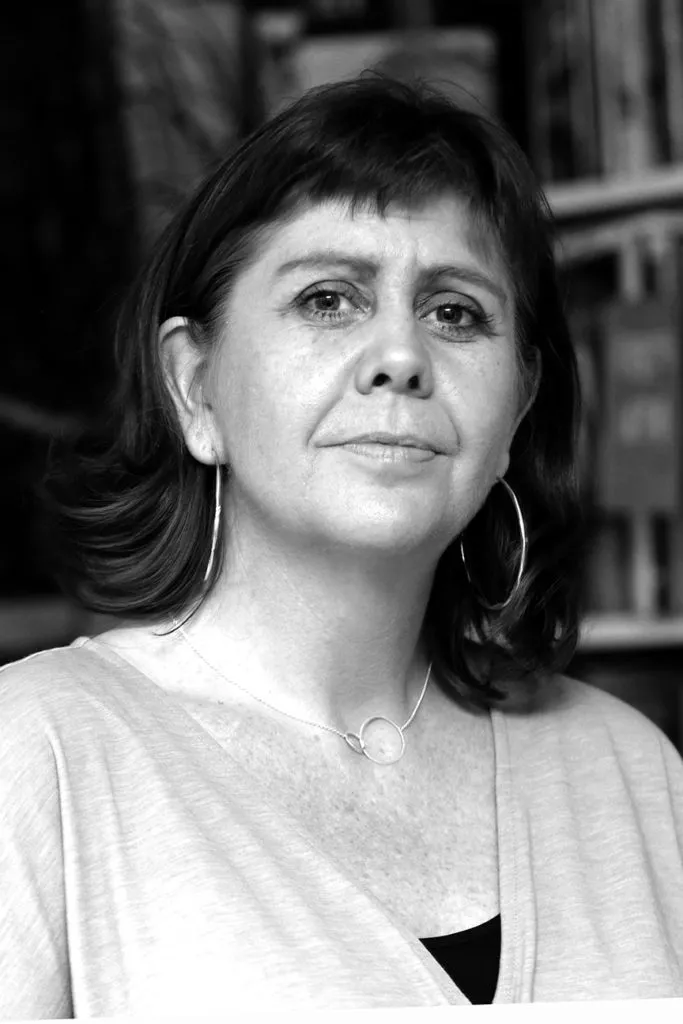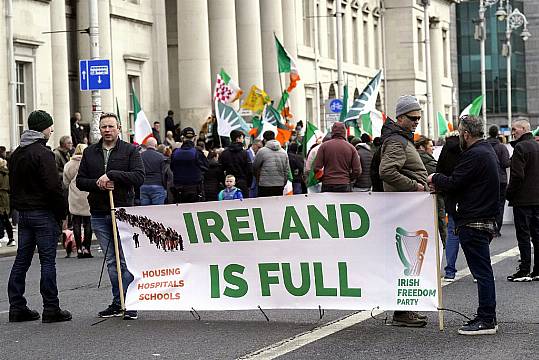Government and opposition politicians are "giving in to the far-right playbook", while anti-immigration demonstrations have become more aggressive since the Dublin riots, according to the director of the Hope and Courage Collective.
The Hope and Courage Collective, previously the Far Right Observatory, is a national civil society organisation "that works with community groups, advocacy groups, trade unions, activists and academics to stop hate organising in our communities and workplaces".
The group works to "support communities and civil society to stay grounded, caring and resilient in the face of far-right hate, bigotry and extremism".
Speaking at a recent Joint Policing Committee, Garda Assistant Commissioner Angela Willis said there has been a fall in anti-immigrant protests in Dublin. However, she noted the level of aggression at demonstrations has increased.
Director of Advocacy and Community Engagement at the Hope and Courage Collective Niamh McDonald told BreakingNews.ie that the group has noticed this trend, adding that anti-immigration demonstrations have become more organised.
"We have noticed a change since the Dublin riots. It's a change in the dynamics of the activity around these protests. We would concur that there is a drop in the numbers of people coming out, but the tactics have changed. We see the likes of blockades or encampments outside centres that have been copied across the country since January.
"It creates that scenario for increased tension, for violence, and for real division in communities. It means gardaí have to attend for people to get into their homes, because for people seeking asylum these are their homes that are being blocked."

Government and opposition parties, particularly Sinn Féin, have been accused of moving in a more right-wing direction around immigration issues recently, and Ms McDonald said they are not doing enough to oppose anti-migrant rhetoric.
She said they had allowed the Overton Window to shift to the right. The Overton window is the range of policies politically acceptable to the mainstream population at a given time. It is also known as the window of discourse.
It essentially means politicians do not have to gain success electorally to change acceptable public discourse. A frequently used example is how the likes of Nigel Farage and the Ukip party helped to deliver the yes vote in the UK's Brexit referendum.
The Government, Sinn Féin and other parties are falling for the far-right playbook.
"The Government, Sinn Féin and other parties are falling for the far-right playbook. This is what we've seen before in the UK and other places where the Overton Window shifts. Brexit was eight years ago and that hasn't solved the migration issue or their other problems.
"Recent research in the EU has shown that when centre left parties or centre parties start taking on the narrative of the far-right, they lose votes in their own base. The more they chase the far-right, the more votes they will lose, and they will just cut their own legs off instead of sticking with their own values.
"Politicians are playing a dangerous game in appeasing the far-right. We need brave political leadership that's going to stand up for progressive policies in this country, to talk about public and affordable housing, healthcare, safer migration pathways for people and how as a country we can do better."
She also feels the Government's approach in moving refugees from areas such as the encampment outside the International Protection Office on Mount Street, and the Grand Canal, does not address the issue.
'Reactive, reactive, reactive'
"The railings on the Grand Canal are taking a public amenity away from everybody. More importantly, those people coming into the country should have a safe roof over their heads, as everyone in this country should. It's about planning. This is all reactive, reactive, reactive.
"Government and opposition's reaction is playing into the far-right playbook. It's a dangerous game. We can see Hungary and Poland, where the far-right government has now been voted out, but that doesn't mean the sentiment is gone... it's like the genie is out of the bottle per se.
"We need to ask the Government and opposition for a progressive narrative and to stop punching down on people seeking asylum, and lift everybody up, not pushing certain groups in society down.
"They need proper accommodation, the right to work, and be part of Irish society. The more people are locked away, the more they are othered. It's a dehumanising process."

Immigration has become a central topic in debate around the local and European elections which take place on Friday, June 7th.
Ms McDonald said it is being used to avoid debate on core issues such as housing and healthcare.
"The narrative around it [migration] is quite negative, but it's also a distraction in many ways from the real material issues that everybody in our society faces... no matter who you are, whether you've lived here your whole life or arrived yesterday. We all need a roof over our heads, care when we're sick, and safe communities.
"We can see the use of negative terms around people seeking refuge and people seeking safety being weaponised. That has happened in numerous European countries and in places like the US and Brazil for the ends of hate and extremism.
"It's used as a distraction and to bait politicians into taking reactionary positions and the chill effect to stop people running. We see it as an attack on our democracy, the way it's being framed [migration], because it's trying to pigeonhole people into this negativity instead of talking about the real material issues facing everybody across the country."

She also expressed concern about attacks on politicians while canvassing.
"There has been an increase in political violence right across the country. We can also see there have been women of colour running in the elections specifically targeted in Clondalkin and Limerick. A woman in Wicklow's posters were ripped down. This kind of intimidation of politicians is a key tactic of hate and extremism.
"It's part of their rhetoric and playbook of how to gain power through violence... to intimidate candidates, directly attack our democracy."
Ms McDonald highlighted the welcoming nature of local communities throughout Ireland which the Hope and Courage Collective have worked with.
Well-publicised anti-migration demonstrations broke out in the East Wall area of Dublin in 2022, but she said this negativity has now been replaced by local community groups who have helped to integrate asylum seekers into the community.
Ms McDonald said her organisation carried out a research project called 'Something to Fight For' in March. It surveyed 3,000 people with five questions, which each included central far-right anti-immigration views.
"Only 1.1 per cent of Irish society held all five extreme far-right views," she explained.
She said far-right groups exert an outsized influence because of their coordinated use of social media.
The Hope and Courage Collective has identified around 40 private Facebook groups across the country which are "all hyper local and can share disinformation at speed".
She expressed disappointment at Coimisiún na Meán's recent Online Safety Code publication because it rowed back on a previous recommendation to remove the recommender system from social media algorithms.
This uses the personal data of individuals to recommend groups and threads, which can often serve as an echo chamber for extremism.
"Social media companies have reduced their numbers of content moderators as hate and extremism grows online. We can see very little content moderation which lets hate and extremism dominate the recommender system, spreading it across people's feeds.
"It's not about free speech, with the recommender system off this content wouldn't be amplified."
Ahead of Friday's elections, and the general election, Ms McDonald called on Government and opposition parties to show "political bravery" to combat the far-right and extremism.
"We need progressive policies. We have seen the less inequality there is, the less growth there is of hate and extremism.
"A positive narrative, positive engagement with communities, progressive policies, then the far-right have no space to grow, no issues to weaponise to create anger and resentment."







